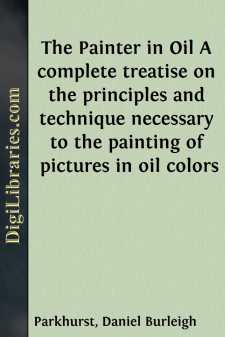Categories
- Antiques & Collectibles 13
- Architecture 36
- Art 48
- Bibles 22
- Biography & Autobiography 813
- Body, Mind & Spirit 142
- Business & Economics 28
- Children's Books 17
- Children's Fiction 14
- Computers 4
- Cooking 94
- Crafts & Hobbies 4
- Drama 346
- Education 46
- Family & Relationships 57
- Fiction 11829
- Games 19
- Gardening 17
- Health & Fitness 34
- History 1377
- House & Home 1
- Humor 147
- Juvenile Fiction 1873
- Juvenile Nonfiction 202
- Language Arts & Disciplines 88
- Law 16
- Literary Collections 686
- Literary Criticism 179
- Mathematics 13
- Medical 41
- Music 40
- Nature 179
- Non-Classifiable 1768
- Performing Arts 7
- Periodicals 1453
- Philosophy 64
- Photography 2
- Poetry 896
- Political Science 203
- Psychology 42
- Reference 154
- Religion 513
- Science 126
- Self-Help 84
- Social Science 81
- Sports & Recreation 34
- Study Aids 3
- Technology & Engineering 59
- Transportation 23
- Travel 463
- True Crime 29
Our website is made possible by displaying online advertisements to our visitors.
Please consider supporting us by disabling your ad blocker.
The Painter in Oil A complete treatise on the principles and technique necessary to the painting of pictures in oil colors
Description:
Excerpt
CHAPTER I
GENERAL OBSERVATIONS
There is a false implication in the saying that "a poor workman blames his tools." It is not true that a good workman can do good work with bad tools. On the contrary, the good workman sees to it that he has good tools, and makes it a part of his good workmanship that they are in good condition.
In painting there is nothing that will cause you more trouble than bad materials. You can get along with few materials, but you cannot get along with bad ones. That is not the place to economize. To do good work is difficult at best. Economize where it will not be a hindrance to you. Your tools can make your work harder or easier according to your selection of them. The relative cost of good and bad materials is of slight importance compared with the relative effect on your work.
The way to economize is not to get anything which you do not need. Save on the non-essentials, and get as good a quality as you can of the essentials.
Save on the number of things you get, not on the quantity you use. You must feel free in your use of material. There is nothing which hampers you more than parsimony in the use of things needful to your painting. If it is worth your while to paint at all, it is worth your while to be generous enough with yourself to insure ordinary freedom of use of material.
The essentials of painting are few, but these cannot be dispensed with. Put it out of your mind that any one of these five things can be got along without:—
You must have something to paint on, canvas or panel. Have plenty of these.
You must have something to set this canvas on—something to hold it up and in position. Your knees won't do, and you can't hold it in one hand. The lack of a practical easel will cost you far more in trouble and discouragement than the saving will make up for.
You must have something to paint with. The brushes are most important; in kind, variety, and number. You cannot economize safely here.
You must have paints. And you must have good ones. The best are none too good. Get the best. Pay a good price for them, use them freely, but don't waste them.
And you must have something to hold them, and to mix them on; but here the quality and kind has less effect on your work than any other of your tools. But as the cost of the best of palettes is slight, you may as well get a good one.
Now, if you will be economical, the way to do it is to take proper care of your tools after you have got them. Form the habit of using good tools as they should be used, and that will save you a great deal of money.
You should have plenty of canvas on hand, and it would be well if you had it all stretched ready for use. Many a good day's work is lost because of the time wasted in getting a canvas ready. It is not necessary to have many kinds or sizes. It is better in fact to settle on one kind of surface which suits you, and to have a few practical sizes of stretchers which will pack together well, and work always on these. You will find that by getting accustomed to these sizes you work more freely on them. You can pack them better, and you can frame them more conveniently, because one frame will always do for many pictures. Perhaps there is no one piece of advice which I can give you which will be of more practical use outside of the principles of painting, than this of keeping to a few well-chosen sizes of canvas, and the keeping of a number of each always on hand.
It is all well enough to talk about not showing one's work too soon. But we all do, and always will like to see our work under as favorable conditions as possible. And a good frame is one of the favorable conditions. But good frames are expensive, and it is a great advantage to be able to have a frame always at hand which you can see your work in from time to time; and if you only work on four sizes of canvas, say, then four frames, one for each size, will suit all your pictures and sketches....












